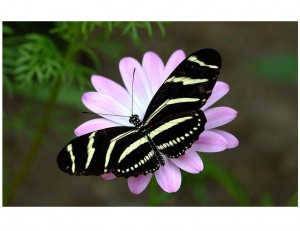Peter Boogaart, Caring for Creation Coordinator
 In our practice, Christian faith is experienced and proclaimed against the backdrop of the liturgical year. In a structured, stylized way we tell the Christ Story over and over, year after year. This all could be quite boring except for the fact that telling the story keeps it alive, and the live story keeps us alive.
In our practice, Christian faith is experienced and proclaimed against the backdrop of the liturgical year. In a structured, stylized way we tell the Christ Story over and over, year after year. This all could be quite boring except for the fact that telling the story keeps it alive, and the live story keeps us alive.
There’s an entering-into quality of Christian life; it’s not just a club membership. The notion of union and intimacy is in the background when, in speaking of God’s creative power, Paul says, “…in him we live and move and have our being…”
Its essentialness notwithstanding, intimacy is under siege in our era. Sherry Turkle, in her book, Alone Together, ponders the emergence of texting as a preferred mode of communication. We have learned to avoid phone calls at all cost. They demand person-to-person response in real time; you can’t prefab your answer—and therein lies the danger. Being engaged is dangerous; you may get hurt, you may be misunderstood, or you may lose control; that’s all too much risk. Better to manage the danger through a filter of electronically predefined friends and content. The whole process, however, despite the appearance of limitless connection, produces isolation.
There’s another view of intimacy which emerges from chaos theory. It has been said that something as small as the flutter of a butterfly’s wing can ultimately cause a typhoon halfway around the world. That’s hard to imagine and even harder to believe, but perhaps closer to what Paul is speaking about.
In an intimate, interconnected world, there are no little things. The richness and diversity of life is dependent upon the free access of any one thing to everything else. The rich flowering of diversity requires risky, and sometimes random, interplay within the world.
In an intimate, interconnected world, there are no little things.”
E.O. Wilson reports that each hectare of rain forest is unique. You can’t see diversity from the air where everything looks like a great green forest; but on the ground, each hectare is a unique ecosystem, the end result of the soils, plants, insects, animals, and weather history that occurred only there.
Christian faith recognizes our frailties; we’re all texters, prone to moving away from the richness of God’s creative love and into fearful, sterile, edited worlds of our own creation. In confession we say: “There but for the grace of God go I.” In the new found security of God’s love, risk is possible again because, as Paul says, nothing can separate us from the love of God.
Caring for Creation is an invitation to risk; not to be reckless, but to open up to the changes in lifestyle that lead to life and the full flowering of all creation. Hope Church has entertained risk before. We’ve planted a rain garden, made time for nature walks, installed energy efficient exit lights, improved boiler efficiency, and recycled batteries and cork. Some of these measures seem small, AAA batteries for instance. However, in an interconnected world, there are no small things; any one thing affects everything else. Behind any one product is a mammoth industrial sequence of extraction, refinement, manufacture, packaging, shipping, and landfill. You can read about those connections in Ryan and Durning’s, Stuff – The Secret Lives of Everyday Things.
Later this month, the Caring for Creation Ministry will offer another opportunity to risk. This challenge is bigger than a battery. You will be invited to join a working group of families to commit yourself to improving the energy efficiency of your own home. We expect this group to meet together throughout the year as we learn how energy is used in a home and then how efficiency can be improved. We will come up with specific plans for improving energy efficiency and support each other in implementing those plans.
Home Energy Team Invitation
Sunday, February 16
12:30 p.m. in Room 106
A light lunch will be provided
Please sign up on the bulletin board outside Commons I
